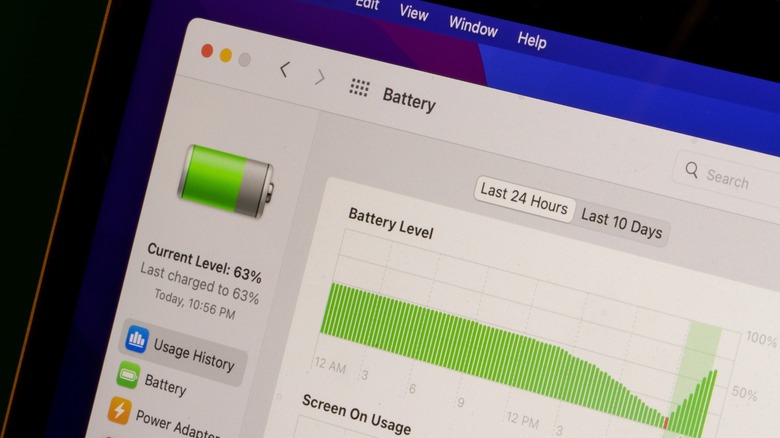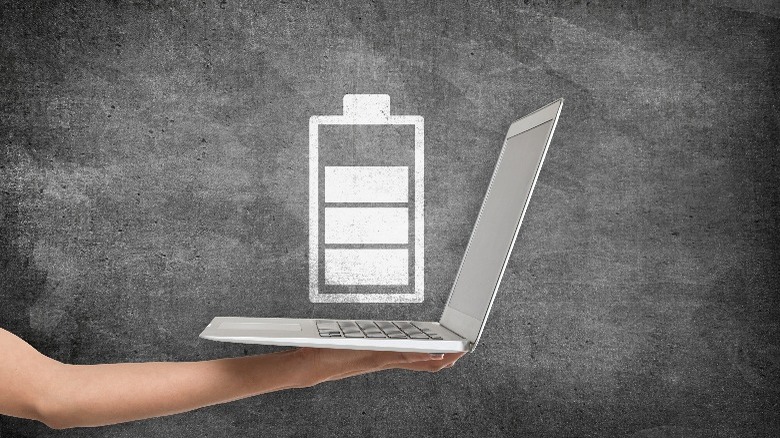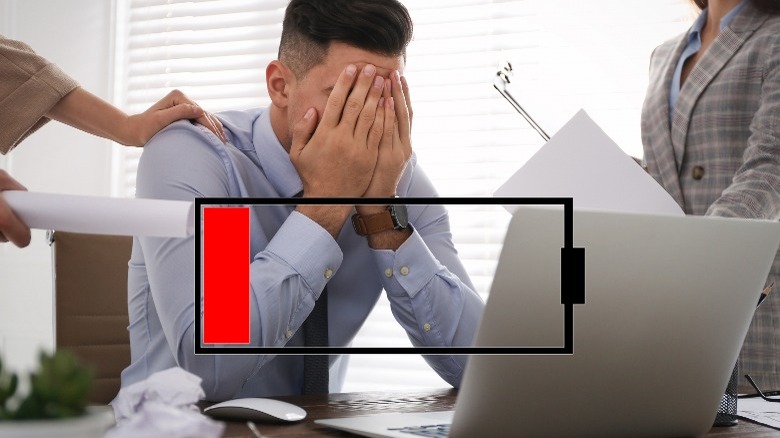How Long Do Laptop Batteries Really Last?
There are laptop batteries that can last up to 22 hours like that of a new M3 MacBook Pro, while a few, such as the Panasonic Toughbook 40, could give you 27 hours, according to PC Magazine. On the other hand, some other laptops can't seem to stay on without being plugged in. This huge discrepancy between batteries across laptops is due to several variables, but there are two general ways to classify them: battery life and battery health.
Battery life is the number of hours you can get out of a battery after a single charge. When you take a laptop like a MacBook, charge it, place it in your pack, and go to a coffee shop, you'll run out of battery according to how much load you place on the battery. If you overwork the battery with CPU-intensive or graphics-intensive sessions, then the battery simply won't last very long. In our MacBook example, you could get less than half of the MacBook's advertised 22 hours.
However, batteries degrade with time. You may have noticed that older laptops can struggle to keep a charge. We refer to the strength of a battery's potency as battery health. Your laptop's battery health has a direct impact on battery life, and battery degradation is an unavoidable part of using it. The more the battery degrades, the fewer total hours you can get from a single charge. Your only choice is to minimize the rate at which it degrades by taking care of it properly.
How do you extend your laptop's battery life?
There are multiple comprehensive guides on how to maximize battery life across your devices, but if you want some quick pointers, here's what you should know:
- The things that really drain your laptop's battery are lights (screens and keyboards), CPU and GPU strain, cooling (if your laptop has a fan), peripheral devices, and sounds from the built-in speakers. You can ultimately trace all life-sapping issues to these.
- Many laptops use LCD screens, which are just large bulbs behind the display. Powering the lighting on the screen takes a lot of battery. Dim your display to extend your laptop's battery life.
- Avoid using resource-hungry software if you can help it. Games, video editing, and other similar tasks can really suck the life out of your battery.
- Watching videos and using your webcam are also culprits of battery drain. There's a reason most official battery tests use video playback hours as a metric — video drains battery. An app like Zoom uses both videos and your laptop's camera, and you'll see it eat at your battery's life in real-time.
- Don't use your laptop's battery to charge your phone unless you're really desperate. If you use a MacBook, avoid this altogether. A MacBook has no "powerful" battery, even with its amazing battery life. Instead, MacBooks have efficient CPUs that demand less from the battery. Charging your phone from a MacBook's battery will quickly drain the laptop. You can use this philosophy with other non-Apple laptops, as well.
- Extreme cold can also cause your laptop's battery to drain quickly. Ensure you avoid exposing your laptop to extremely cold ambient temperatures.
How do you prolong your laptop battery's health?
In truth, the real thing you should protect is your laptop's battery health. A weak battery cannot be fixed; you will have no choice but to replace it. Most laptops use lithium-ion batteries (Li-on), and these degrade with each cycle of use. Each time it reaches 0% from 100%, it is one step closer to the end.
On average, laptop batteries have two to five years of use or 300 to 500 cycles of charge. As you near the end, the laptop will begin to lose hours until it can no longer support normal performance, forcing it to shut down soon after you start it up.
Fortunately, there are habits you can adopt to ensure your battery stays healthy for longer:
- Don't charge your laptop to 100%, and don't let it die. Doing this stresses the chemicals in a Li-on battery and causes faster degradation.
- Monitor your laptop battery's health frequently to see what habits are killing it. There are methods to check the battery health on a MacBook and ways to see the battery health on a Windows laptop.
- Don't leave your laptop plugged in after 100%. This can cause the battery to overwork and overheat and reduce its potency even faster.
- Avoid exposing your laptop to heat. Whereas cold might temporarily cause your battery to have poor charge, heat can irreversibly degrade your battery.
As a last piece of advice, how you manage your laptop's battery life will affect its overall battery health. Try not to drain the battery too quickly with better battery life-saving habits.


